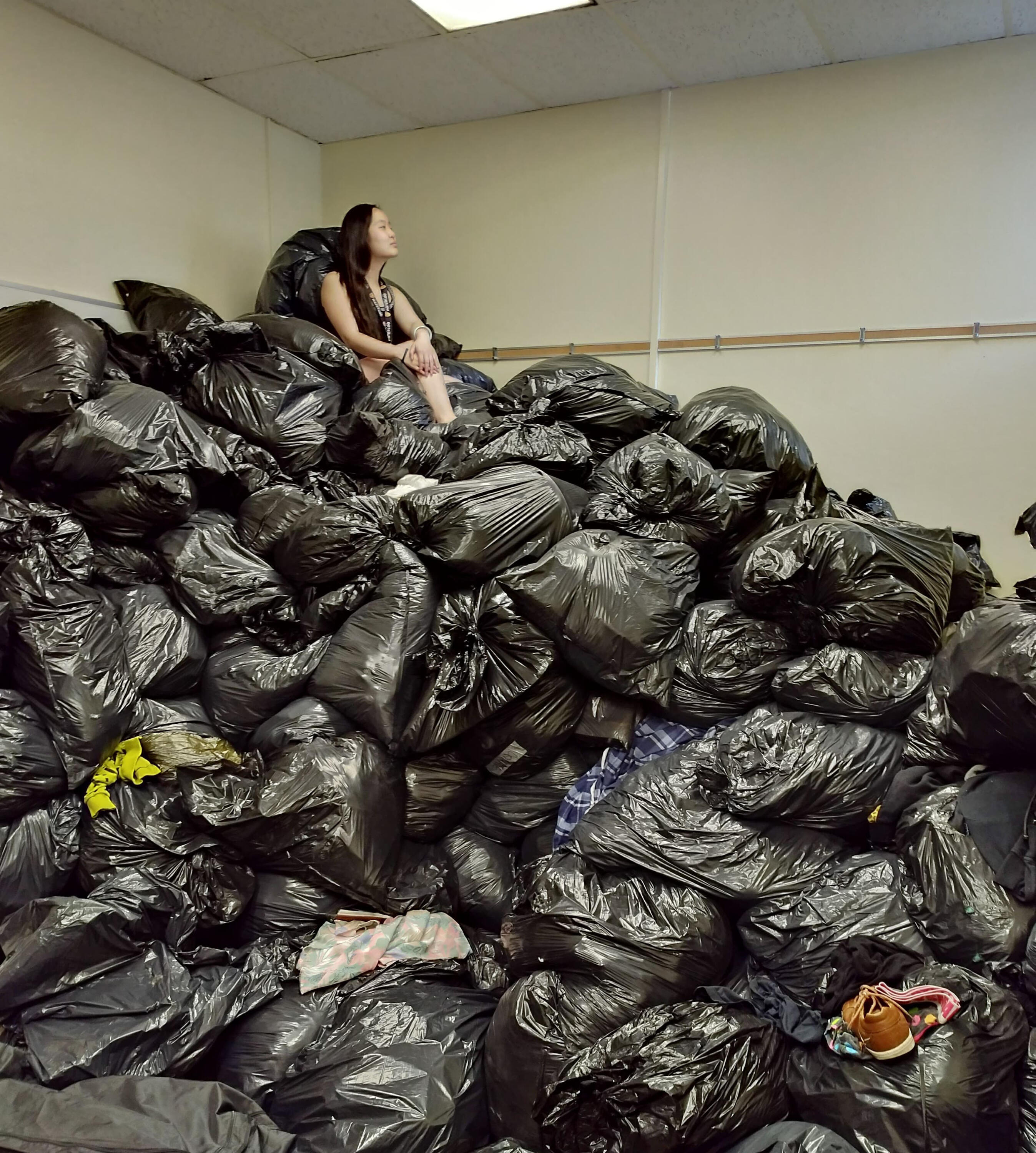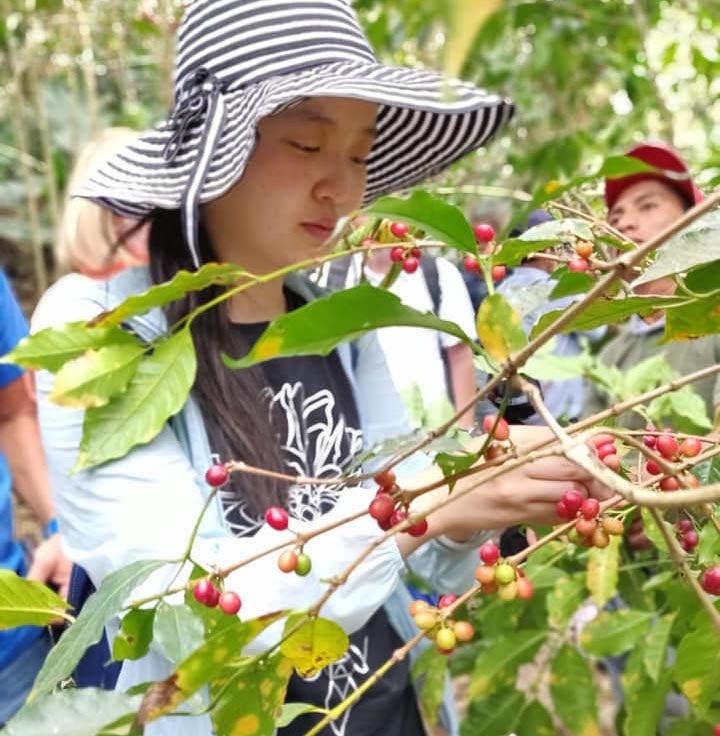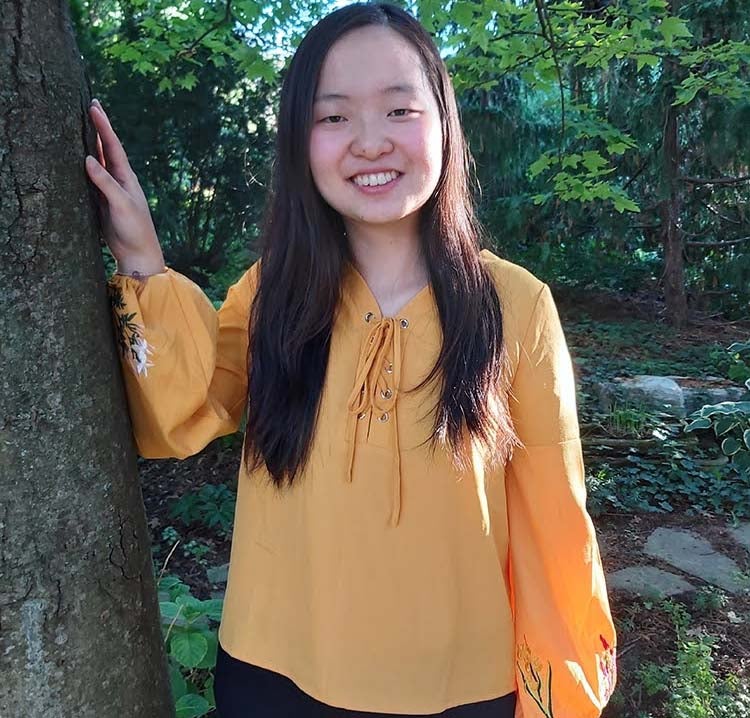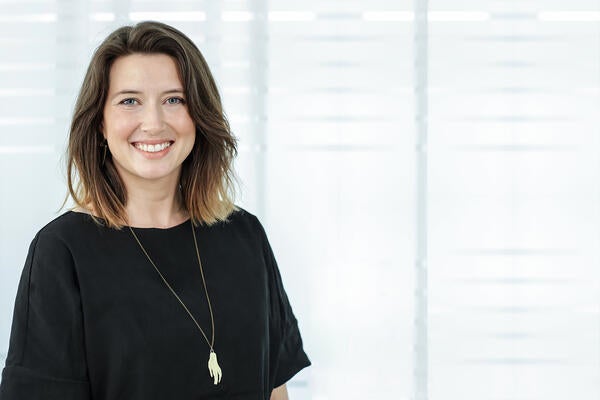
A poet Warrior for the planet
Alumni Gold Medal winner Maggie Chang's unvarnished takes on being a top Environment student in the Class of 2021

Alumni Gold Medal winner Maggie Chang's unvarnished takes on being a top Environment student in the Class of 2021
By Maggie Chang Faculty of Environment Alumni Gold Medal WinnerSchool of Environment, Resources and Sustainability (SERS) student Maggie Chang is the 2021 Gold Medal winner. But that’s not nearly the most interesting thing about her. Chang is a poet, writer and artist whose environmental journey started in first grade when she learned about deforestation of the Amazon in school.
Since then, Chang led University of Waterloo second-hand clothing sales for sustainable fashion, organized a UN Sustainable Development Goal training and helped establish EcoSchools Canada’s first ever Youth Advisory Council — leading her to be named one of the first WWF Canada Living Planet Leaders. Recently she was recognized as one of Starfish Canada’s Top 25 Environmentalists Under 25.
As one last piece of homework we asked Chang to share her thoughts on poetry, activism and you know, the fate of the planet. What she turned in was so brilliant, honest and thoughtful we’re sharing her lightly edited thoughts here:

There is real power in art and creativity to disrupt a harmful status quo, dream up something better and put it into action. It was actually an international development course that really illustrated and hammered this home for me. The reality is, all things that have gotten better started with creativity - imagination, dreaming up a new idea, and that’s why I firmly believe art and creativity have a huge role to play in building a sustainable future.
There’s also something about poetry specifically that seems to help make these dreams particularly accessible, whether you’re dreaming up something new yourself, or trying to communicate your ideas to others. Poetry can capture the imagination, energize the heart, help us see and then break down and dismantle the systems that are no longer working for us. Poetry can also connect us and move us into spaces of healing — we saw this earlier this year, when Amanda Gorman’s poetry resonated with the United States and the world.
Poetry is radical, and if we dream radically for what a sustainable world could be, I think we could build something truly good, for every living thing that calls Earth home.
I’d known since grade eleven that I wanted to pursue a sustainability focused program after high school, but I was pretty unimpressed with all the stories about massive class sizes and just being a number in university. I didn’t want to settle for that. I wanted better for my university experience — the connections you make with people are invaluable!
So, knowing my cohort would be 70 to 90 students in SERS instead of being one of a thousand somewhere else, was a huge draw for me. I also appreciated that at Waterloo, the environmental programs were run by an entire faculty focused on the environment. To me, it felt like a very clear demonstration of dedication to excellence in environmental education.
In terms of location, Waterloo was what I wanted for my university experience. It’s close to Toronto, where I grew up, so I could have the opportunity to see what living in a new place would be like, have new experiences, and develop more independence, while still being close enough to home to be able to go back every other weekend and enjoy the things Toronto has to offer.

Actually no. I came into the program not realizing I’d have room for so many electives. I’m someone who really has a variety of interests and being able to nurture all of them really helps me thrive. During my undergrad, in addition to my major in SERS, I had space to take courses on everything from creative writing to women’s studies to biology to international development and languages. I think it really helped me be well rounded in how I think, and how I take action.
I also really like the community culture in the faculty — it’s supportive while also pushing individuals to fulfill their potential, and I think that’s the best way to encourage people to grow.
I don’t know if it was so much a choice as just what felt right to me. University is such a great place to learn and grow — being exposed to new perspectives and theories, getting to use top notch equipment, it really helps broaden your horizons and helps develop your critical and analytical abilities.
For all these reasons, I knew academics were important and beneficial. But at the same time, I also never really subscribed to the philosophy that you had to wait until you were older or wiser, “out in the real world,” to make a difference.
You never have to wait to make a difference, young people have always been at the forefront of change, you just need to equip yourself with a good base of knowledge and tools. I’ve been passionate about sustainability my entire life, so making a tangible impact for the Earth is just something I’m always going to prioritize as being part of my time.

I’d say I lean toward hope, but I also recognize the challenges we face. I know so much about all the good work people are doing, both in Waterloo and all around the world. I know that we have many of the solutions that we need to solve these massive environmental problems. I know about the power of creativity to recreate the world in a way that is equitable and sustainable. But equitable change also often takes a long time, it’s hard to bring about and people and the planet are suffering, right now.
With the environmental time limits we face too, this can be hard to reconcile. Plus, sometimes the way the system works and other peoples’ lack of support can be disappointing and discouraging. In the end though, there are still many things that we can do, and big or small they do matter, so that’s what I focus on.
I’m so grateful and honoured! I really just got involved with the academic and extracurricular projects I worked on during my undergrad because that was where my passion was, and so to be recognized for my efforts even though I wasn’t looking for it, it really means a lot. I think it also really affirms that I have been living my values and making a difference.
Having grown up in Toronto, Chang recognizes the traditional territory she resides on. In her case she lives on the traditional territory of the Mississaguas of the Credit, the Anishnaabeg, the Chippewa, the Haudenosaunee and the Wendat People.

Read more
Corporate Knights magazine recognizes Waterloo scholars who are shaping Canada’s sustainable future

Read more
Amr ElAlfy, first-ever PhD graduate from the School of Environment, Enterprise and Development (SEED), is developing an industry-standardized reporting tool

Read more
Phoebe Stephens wins prestigious honour for research on investing for sustainable food systems.
The University of Waterloo acknowledges that much of our work takes place on the traditional territory of the Neutral, Anishinaabeg, and Haudenosaunee peoples. Our main campus is situated on the Haldimand Tract, the land granted to the Six Nations that includes six miles on each side of the Grand River. Our active work toward reconciliation takes place across our campuses through research, learning, teaching, and community building, and is co-ordinated within the Office of Indigenous Relations.